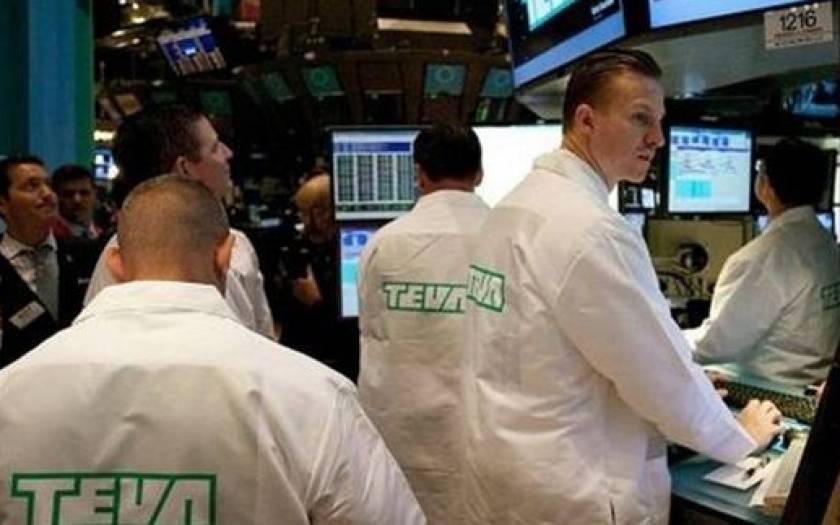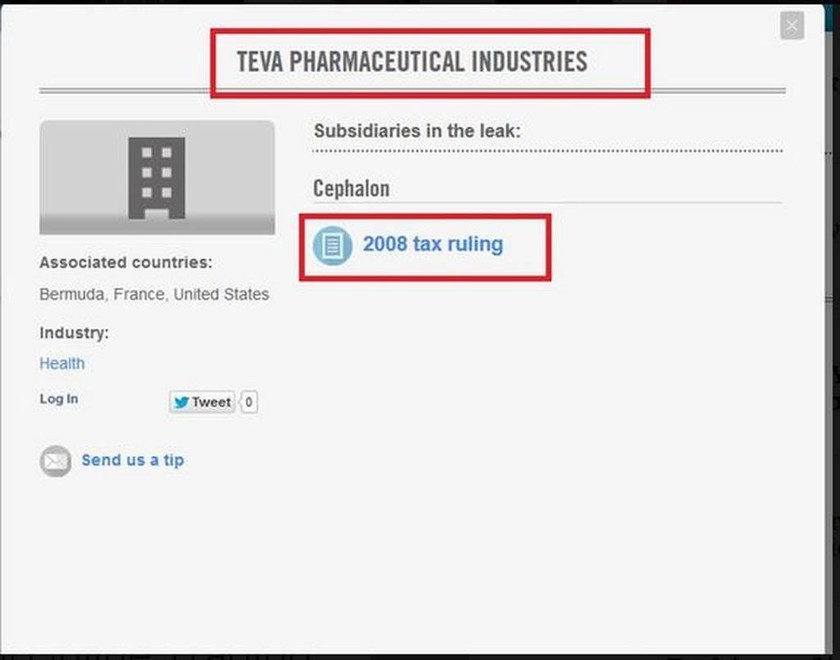Teva in Luxleaks

In the "kingdom" of tax dodge, Luxembourg, the Israeli company that produces generic drugs of questionable quality holds a prominent position
A year ago the pharmaceutical company of cheap generic TEVA reached an agreement with the Israeli tax authorities to pay about 718 million Dollars to settle a series of tax cases.
The Israeli pharmaceutical asked to pay back taxes on gains arising from special tax breaks, which it enjoyed in previous years.
Shortly before, TEVA announces that it was going to proceed with layoffs of thousands of workers in the framework plan to reduce operating costs of 2 billion Euros until 2017, something that had caused a public outcry in Israel. TEVA was the company that received the biggest tax breaks by Israeli governments over the last 8-9 years. The granting of tax breaks by the Israeli government aimed to encourage capital investment and allowed TEVA to save 3.4 billion Dollars, from 2006-2011, which would normally be required to repay to the state.
Today, the case LuxLeaks, with the secret agreements of tax dodge between companies and Luxembourg authorities, creates chain reactions and even tremors in internal balance of the European Union.
Given the tactics of special tax breaks that followed TEVA in Israel, it is not surprising that the name of the pharmaceutical industry is in the leaked documents on secret tax arrangements with the authorities of the Grand Duchy.
Specifically, the pharmaceutical company Cephalon, which belongs to TEVA Group, appears in a document of the audit company PriceWaterhouseCoopers, to ask, -and ultimately approved by the Luxembourg authorities-, special tax concessions for economic activity between 2002-2007.
It is about hundreds of millions of Euros, resulting from liquidations and borrowings, which "commute" between Luxembourg, France and Bermuda, in an apparent attempt by the shareholders of the company to ensure the lowest possible rate of taxation of their profits...
The agreement in which PriceWaterhouseCoopers brokered was achieved in 2008, three years before Cephalon absorbed by TEVA. According to the announcement of TEVA, this acquisition would generate revenues of $ 20 billion Euros at the interim results in June 2011.
The fact that Cephalon had obtained special tax treatment in Luxembourg was obviously attractive factor for its acquisition by TEVA, for which there is no evidence that sought to change the tax immunity of Cephalon.
Besides, TEVA, except the huge tax breaks in Israel, has been accountable for corrupt practices in officials in a number of European countries. According to the charges, the objective was to secure an advantage over its competitors, possibly by violating the laws of those countries.
However, the accusations against TEVA for economic offenses, maybe are not the most serious concerning the moral practices. Recall that this is the company that has billion of profits by producing dubious generic drugs in third countries, where the enforcement of safety rules is inadequate and the labor costs are minimal, as the staff is often untrained. Also, there is a debate for the quality of raw materials used in the formulation, always in the context of minimizing production costs. It is no coincidence that cheap generics of TEVA have many times been withdrawn from the market in the US and other countries such as France, because they were accused of dangerous side effects on patients' lives.
However, TEVA, by taking advantage of the cuts in health expenditure in many countries -Greece among them-, recorded impressive financial results for the third quarter of 2014. It seems that the "severity" of the Israeli tax authorities, was temporary, as the promotion of TEVA is important on Israel's bilateral agreements.
Unfortunately for Greece, the Greek State and the Greek production of medicine, such practices of tax dodge, find willing 'partners' within memorandum governments and the leaders of the Ministry of Health.
Until when?














